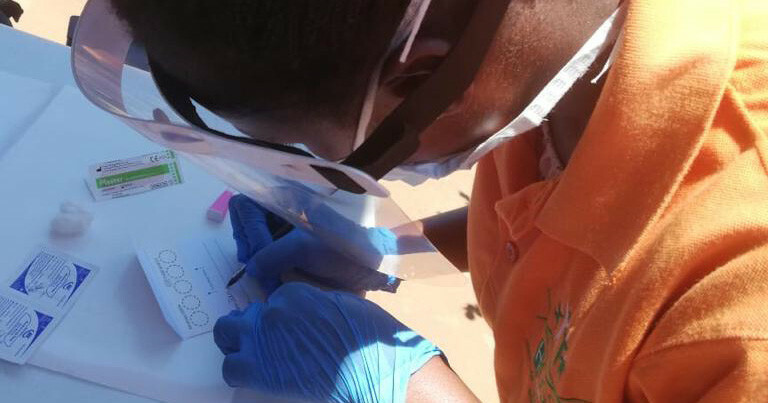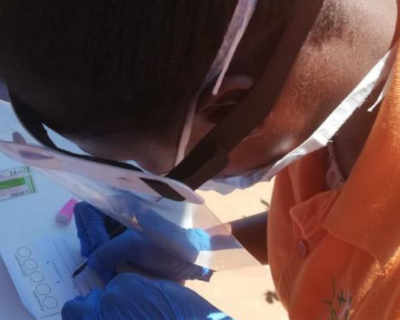AfriCoVER

Summary
The European & Developing Countries Clinical Trials Partnership (EDCTP) awarded a COVID-19 research grant to the Outbreak Research Team of ITM to study how the COVID-19 viral disease spreads in a low-income peri-urban community in Mozambique, and who is most affected by the disease in sub-Saharan Africa.
During December 2020 - March 2022, households of a population cohort embedded in the Demographic Health Surveillance System (HDSS) of Polana Caniço, Maputo, Mozambique (16,500 people in a peri-urban neighbourhood of Maputo) were contacted biweekly. Residents reporting any respiratory sign, anosmia, or ageusia, were asked to self-administer a nasal swab, for SARS-CoV-2 PCR testing. Of a subset of participants, dried blood spots were repeatedly collected three-monthly from finger pricks at home. Antibodies against SARS-CoV-2 spike glycoprotein and nucleocapsid protein were detected using an in-house developed multiplex antibody assay. We estimated the incidence of respiratory illness and COVID-19, and SARS-CoV-2 seroprevalence. We used Cox regression models, adjusting for age and sex, to identify factors associated with first symptomatic COVID-19 and with SARS-CoV-2 sero-conversion in the first six months.
Publications
Project
Characterising Transmission of SARS-CoV-2 in a Peri-urban Population in Mozambique Using Population-based (Sero)Surveillance
Period
June 2020 – Octobre 2023
Contact
Brecht Ingelbeen
Principal Investigator
Key actors
Funding
Share project on
